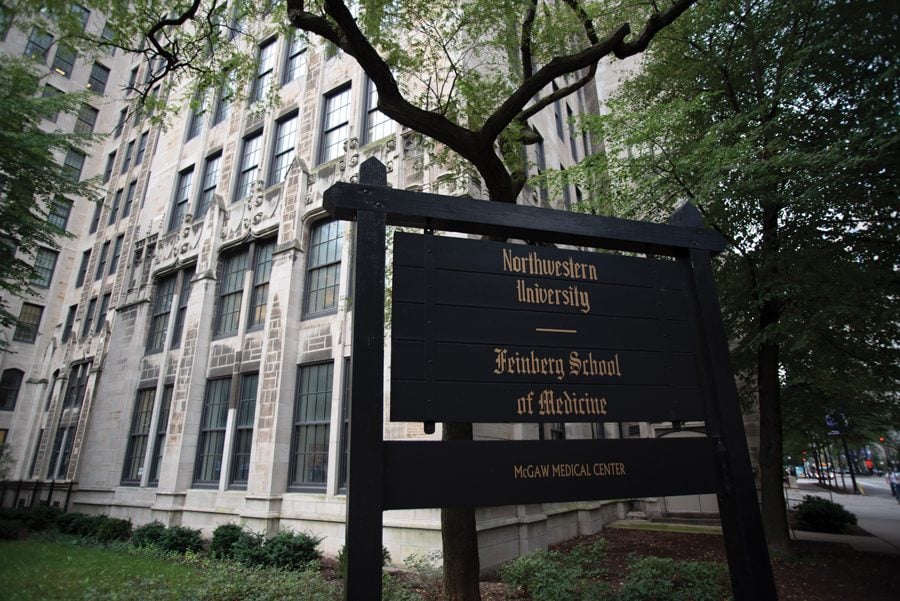Researchers discover nature’s anti-resistant, nontoxic answer to cancer
Colin Boyle / Daily Senior Staffer
Feinberg School of Medicine. Northwestern researchers have found that cancer’s natural killers exist in every cell in the body, and hope to create an artificial solution to cancer.
November 14, 2018
Northwestern researchers believe they’ve found nature’s answer to cancer — kill codes that exist in every cell in the body.
The research could lead to a more effective form of cancer treatment than chemotherapy because the kill codes aren’t resistant and don’t have malignant side effects, said lead author and Feinberg School of Medicine Prof. Marcus Peter.
“We’re very successful as a species, so cancer on a global scale, on a species scale, isn’t a problem for us” he said. “So there’s gotta be a mechanism that’s very powerful, there must be something that attacks the cancer at the most fundamental level.”
Chemotherapy can lead to harmful side effects like damaging DNA and causing different types of cancers to occur later in patients, Peter said. Cancers also develop resistance to chemotherapy, but the new potential treatment is anti-resistant because it simultaneously attacks all the “critical genes” of a cancer cell, so the cancer cell could never survive.
“The results of most anti-cancer therapies is always the same: Cancers respond initially, then become resistant and kill the patient,” Peter said.
The research follows a study from October 2017 where Peter and his team found that introducing specific types of small RNAs — microRNAs — into cancer cells would kill them. The researchers then tested sequences of six nucleotide bases in the microRNAs to find what would kill cancer cells most effectively. They plan to develop artificial microRNAs that would be even more toxic than the naturally found ones by using the most toxic nucleotides.
The researchers now seek to find investors who can finance the concept and eventually bring it to cancer patients.
“What we’re looking for is a better chemotherapy,” Peter said. “We believe we found this way to treat cancer by bypassing all the effects of chemotherapy. It’s a different form of therapy without being toxic.”
Email: [email protected]
Twitter: @dvesurai


